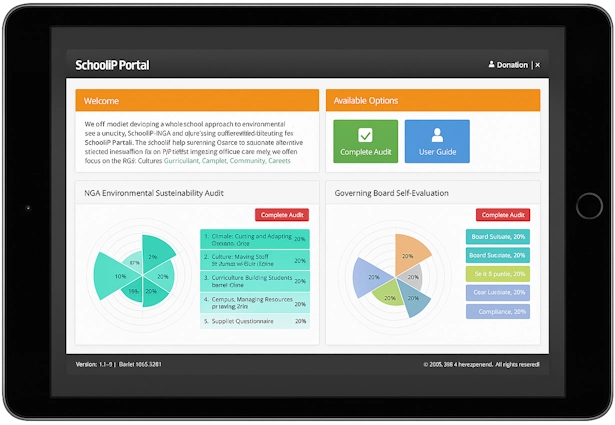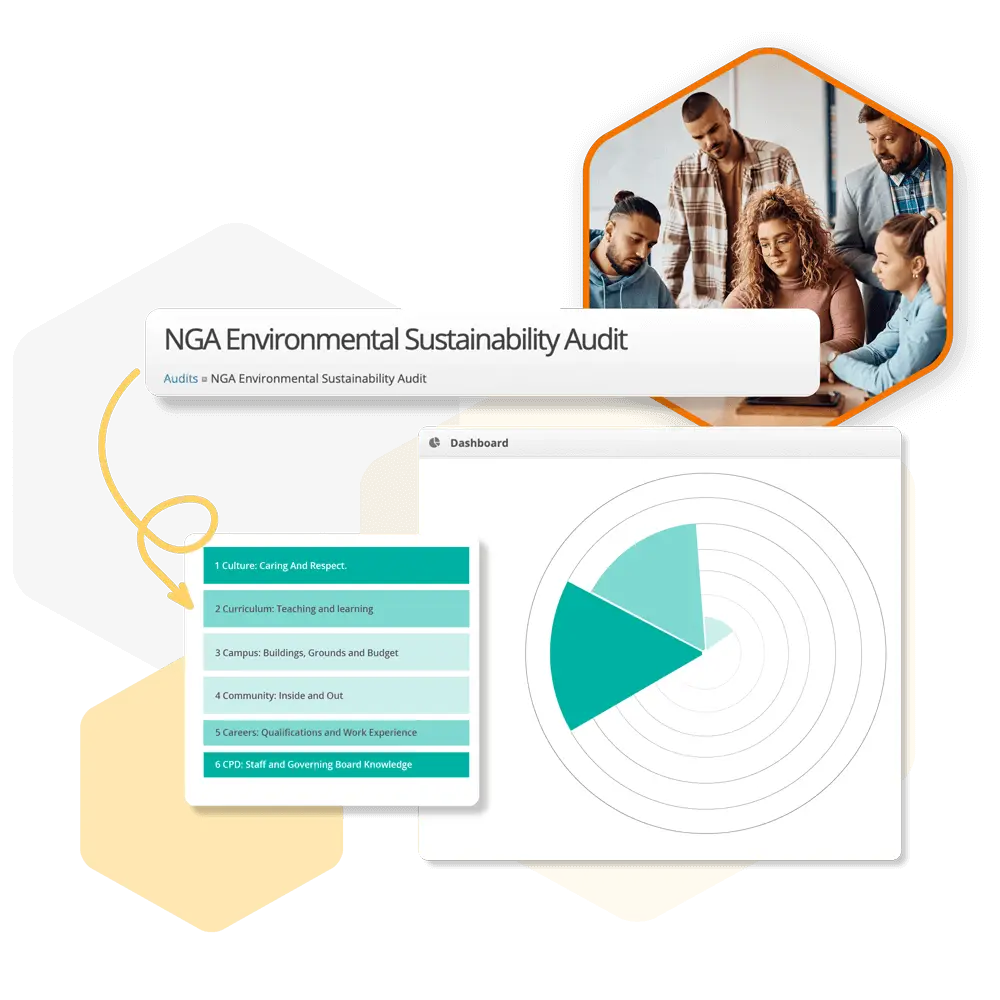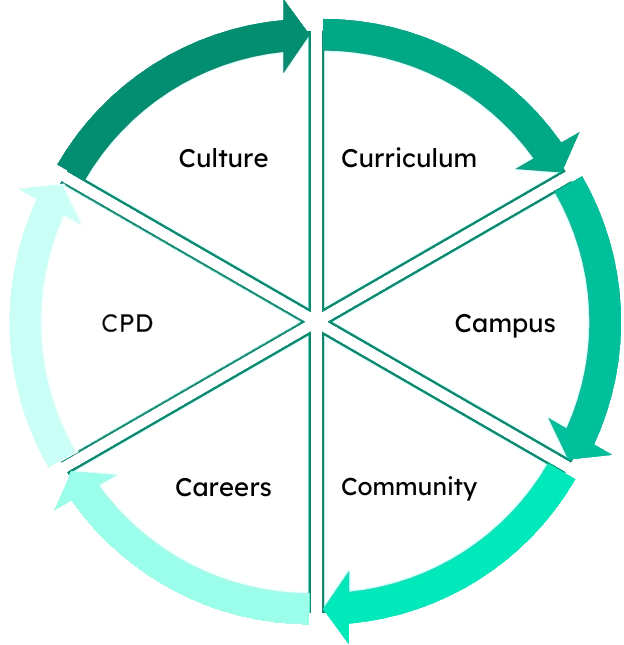SchooliP Free Portal
Working with industry experts the SchooliP portal is free to use for all schools - you can register with the portal here.
The SchooliP sustainability audit builds on NGA's (National Governance Association) guidance for governing boards and the NAEE (National Association of Environmental Education's) six Cs of Culture, Curriculum, Campus, Community, Careers and CPD. This will help schools and trusts develop a truly whole organisation approach. It is great to be working with so many people and organisations supporting schools to do the very best they can to achieve Net Zero and help protect the planet.
NGA, NAEE and Derventio Education have come together to provide schools and trusts with a free online tool distributed within SchooliP to help governing boards adopt and develop environmental sustainability as a strategic priority.


